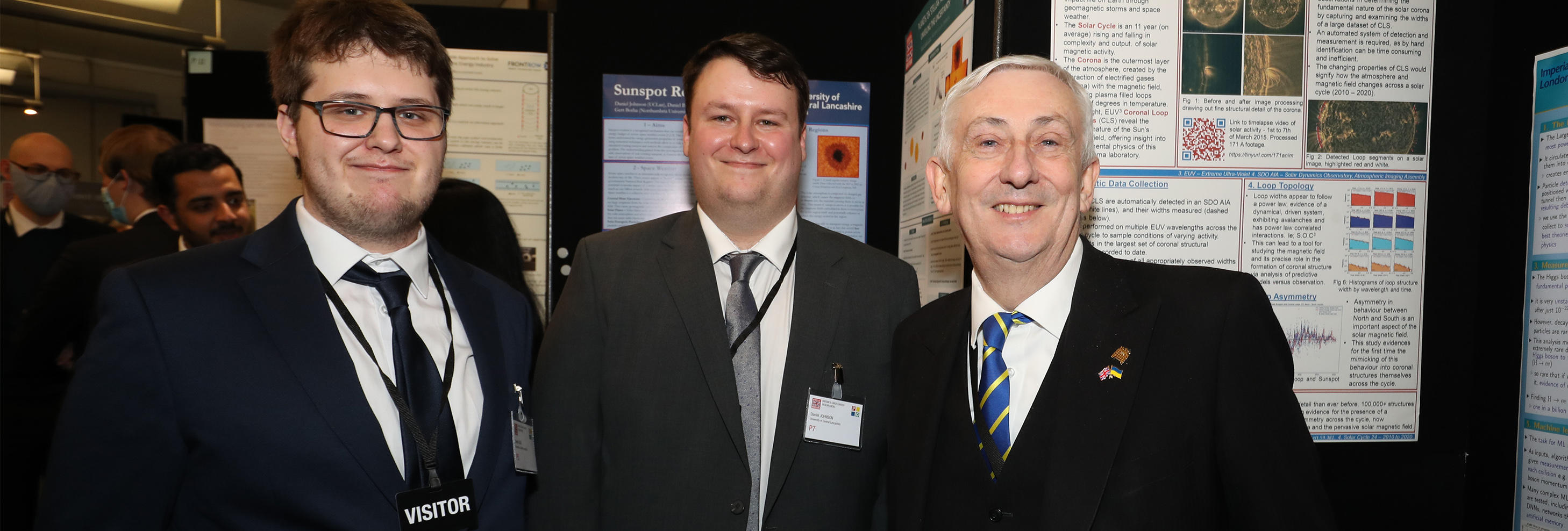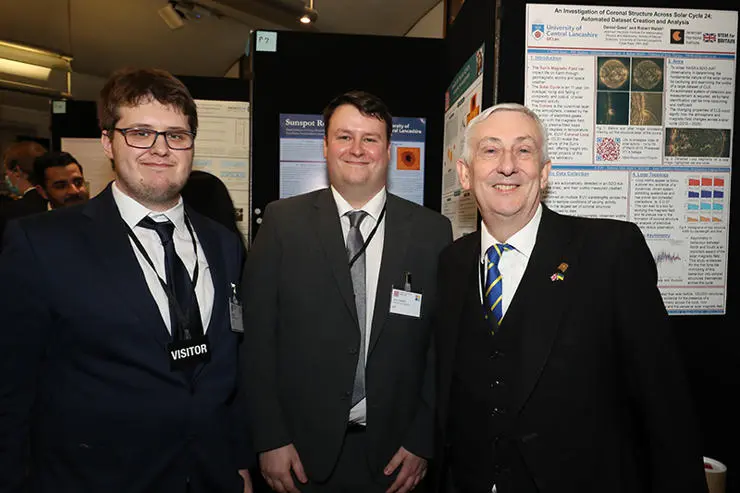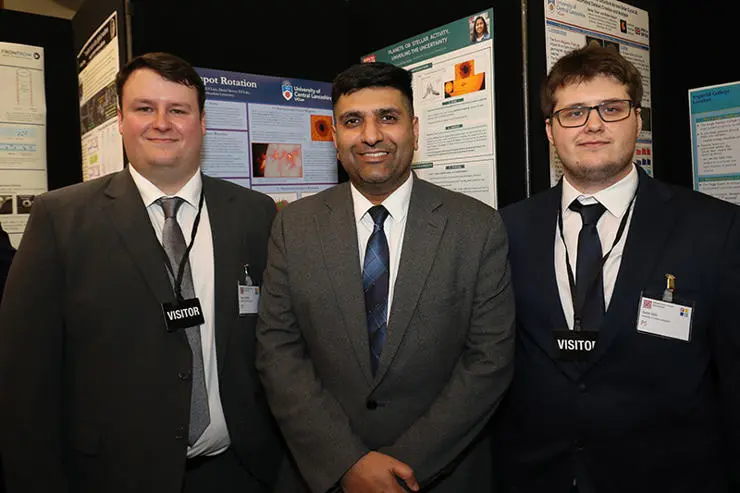Astrophysics PhD students showcase work to politicians
Two astrophysicists from the University of Central Lancashire (UCLan) have showcased their research to politicians in Parliament.
PhD students Daniel Gass and Daniel Johnson took part in the national STEM for Britain event, which is run by the Parliamentary and Scientific Committee in collaboration with a number of distinguished scientific, learned and professional organisations.
The annual event celebrates the best of UK scientific research being carried out by early career researchers and is in the only national competition of its kind.
The physics section of the event was sponsored and supported by the Institute of Physics; the professional body and learned society for physics in the UK and Ireland, and both students were shortlisted from hundreds of applicants to appear in Parliament.
PhD astrophysics student Daniel Johnson researches how extreme space weather events are powered.
"The STEM for Britain event is a unique opportunity to present the science I have worked on during my PhD studies to the policy makers who are responsible for planning our national strategies for mitigating the impact of space weather."
— UCLan PhD student Daniel Johnson who took part in the national STEM for BRITAIN event
He said: “Such events are extremely impactful and influence communication, the national grid and space based technology, and much more.
“The STEM for Britain event is a unique opportunity to present the science I have worked on during my PhD studies to the policy makers who are responsible for planning our national strategies for mitigating the impact of space weather. I aim to gain an insight into the link between science and politics from this event and hope this is the first instance of an ongoing relationship my work has with its underlying political foundations.”
Fellow PhD student Daniel Gass, whose research analyses the sun’s coronal structure across the solar cycle to aid space weather prediction, said: "I am honoured to be selected as a physics finalist and share the talent and the quality of research taking place at UCLan.
"I am honoured to be selected as a physics finalist and share the talent and the quality of research taking place at UCLan. "
— UCLan PhD student Daniel Gass who took part in the national STEM for BRITAIN event
“The University’s Jeremiah Horrocks Institute has been a fantastic place to be a researcher in solar astrophysics and I'd like to thank my supervisor Professor Robert Walsh, the head of the institute Professor Derek Ward Thompson, as well as all the other students and staff who have helped me present my research to MPs and industry professionals in the House of Commons."
The Rt Hon Sir Lindsay Hoyle, MP for Chorley, Speaker of the House of Commons and UCLan Honorary Fellow congratulated the students at the event.
He said: “I am delighted to have met these talented young researchers and learn more about their work. The quality of research on display was outstanding and it’s exciting to see progress and innovation being made across the variety of STEM subjects.”
Stephen Metcalfe MP, Chairman of the Parliamentary and Scientific Committee, said: “This annual competition is an important date in the parliamentary calendar because it gives MPs an opportunity to speak to a wide range of the country’s best young researchers.
“These early career engineers, mathematicians and scientists are the architects of our future and STEM for BRITAIN is politicians’ best opportunity to meet them and understand their work.”
"The quality of research on display was outstanding and it’s exciting to see progress and innovation being made across the variety of STEM subjects."
— The Rt Hon Sir Lindsay Hoyle, MP for Chorley, Speaker of the House of Commons and UCLan Honorary Fellow
The Parliamentary and Scientific Committee runs the event in collaboration with the Institute of Physics, Royal Academy of Engineering, the Royal Society of Chemistry, the Royal Society of Biology, The Physiological Society and the Council for the Mathematical Sciences, with financial support from Dyson, Clay Mathematics Institute, United Kingdom Research and Innovation, Society of Chemical Industry, the Nutrition Society, Institute of Biomedical Science, the Heilbronn Institute for Mathematical Research, the Biochemical Society and IEEE UK & Ireland Section.



